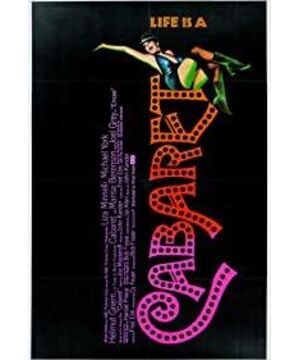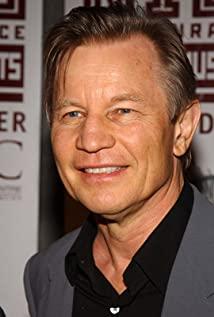Director: Bob Foss
Starring: Lisa Midelli
's "Hotel" in 1972, is the masterpiece of the famous director Bob Foss. Perhaps people have never heard of this film, and the director's name is also unfamiliar, but in the history of film, this is a legendary work. More people have more memories of the 8th Academy Awards in 1972, which is the unsuccessful defeat of "The Godfather 1," but they did not invest much in the song and dance film of "The Godfather" that quietly defeated Coppola. s concern. "The Godfather 1" is indeed a classic, but when you face the "Hotel", you can't help but admit that it deserves it.
This film adapted from the Broadway musical of the same name tells the emotional story of a showgirl performing in a hotel and a male teacher living in an apartment in Berlin under the control of the Nazis. One clue is the song and dance performance on stage, and the other clue is the traditional love story. The plot structure of the backstage feature film, which most follows the story pattern of the early song and dance film, has completed the transcendence of the genre in the format of the genre film.
Musical films originated in the early stage of the sound era of movies. Since the invention of sound film in 1927, "Light of New York" and "Broadway Melody" two years later established the "front stage singing and dancing, backstage story" genre model of musicals. Due to the economic depression of the 1930s and the promulgation of "production rules", singing and dancing films have always been a refuge from the world. The film concentrates all social contradictions on the theme of love and personal struggle. The perfection of love and personal career is the film. In the final ending, singing and dancing, as independent passages in the film, does not carry more narrative functions. In 1939, "The Wizard of Oz" pioneered the participation of singing and dancing in the narrative, and the later "An American in Paris" also broke through the "backstage musical" genre mode, using singing and dancing to narrate the mood and promote the story, but no matter what , The pure entertainment tradition of singing and dancing genre movies has not changed. At the beginning of the new Hollywood era, Bob Foss injected more social and cultural themes into his song and dance movies, but his form of expression has returned to the narrative mode of the earliest "backstage feature films", and even his song and dance The weakened narrative function of the film also follows the rules and methods of the earliest song and dance movies, but the film has transcended the surface of its singing and dancing with its profound social and cultural connotations.
The film reinforces the background of Berlin during the Nazi rule, and metaphors modern violence through the flogging of fascist forces. In the film, through a "hotel", a stage that does not care about the world, it contrasts the dark rule of assassination and violence on the outside. Those songs and dances that seem to be irrelevant to the background and narrative of the film are closely related to the theme in the underlying layer. The overall love clues of the film also have a more in-depth and sensitive discussion. The male protagonist is unable to have a sexual relationship with the female protagonist in the beginning, psychological barriers, the abused psychology of the rich girl from the orthodox education background, the male and female protagonists have entanglements with a wealthy bisexual. The film’s discussion of lust and sex is a qualitative surpassing of the simple love model of previous musicals. Moreover, unlike the bright and complete stories of previous love songs and dances, the film does not have an ending to the love of the heroes and heroines, and there is no hint about their future. For the pair that started with rape and eventually became true love, it was because the Nazis treated the Jews. There is no explanation for the persecution and love affair that ended without disease. The whole film ends with a song and dance, but it is not as false and complete as "An American in Paris" solves all contradictions with a song and dance.
Every song and dance in the film, even if removed from the film, does not affect the progress of the narrative, and the image style is completely different from the real space scene of the narrative paragraph. On the surface, the seemingly unconnected song and dance seem to be independent of the narrative, but in its deep sense, the theme of the film is interpreted and interpreted. A group of showgirls with red makeup, led by the master of ceremonies who disguised themselves as women, performed a flashy and vulgar burlesque, and suddenly turned to imitating the march of the fascist army. There was a mockery. In the song and dance passage of "I am the only man", the exaggerated plot of two women and one man living in harmony is an interesting banter that ridicules the prevalence of male chauvinism. The exaggerated fragments of love songs and dances between humans and beasts implicitly allude to the strict rules of marriage and love and racial separation between races at that time. The song and dance passages of "Money Makes the World Turn Around", exaggerated language movements, and explicit lyrics are also obvious to the money worship.
On the narrative level, "Hotel" is more complicated in the same type of song and dance movies. The film focuses on the emotional barriers and complex emotional relationships of the characters, rather than the popular song and dance film's rendering of "how to fall in love". The heroes and heroines met and had a good impression at the beginning, and soon moved in together, without too many ramifications of emotional development. The actor has a psychological barrier to having sex because the girl who had sex with him has died one after another. And the heroine is also hesitating whether to trade her body for fame or fortune or to be loyal to love. Although two people live together and have sex, they are still on the verge of friendship and love. Their mutual friend is a bisexual rich man. The relationship between the three is very delicate, but there is not much judgment about right and wrong in the play. Because of the war, rich bisexual men abandon them both. The relationship between the two people once again wandered on the edge of sympathy and love for each other. However, in the end, the pregnant heroine knocked out the child who did not know who it was. The man promised to take care of the heroine beforehand, but he also faced the approaching time of returning home. The film ended. At the end of the "Welcome to the Cabaret", the emcee bowed the curtain call. He did not give any hint about the fate of the two, let alone an exact result.
View more about Cabaret reviews










